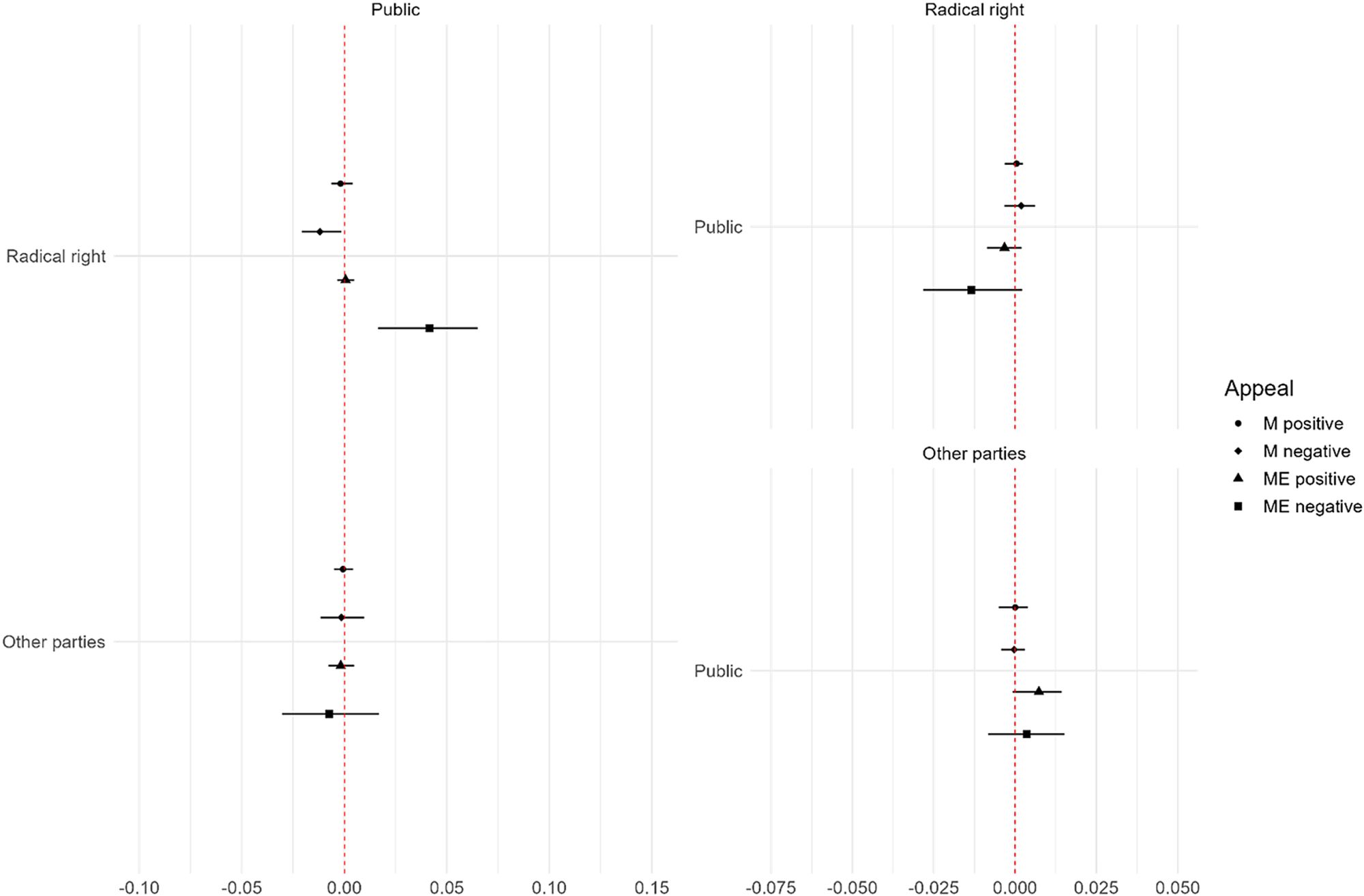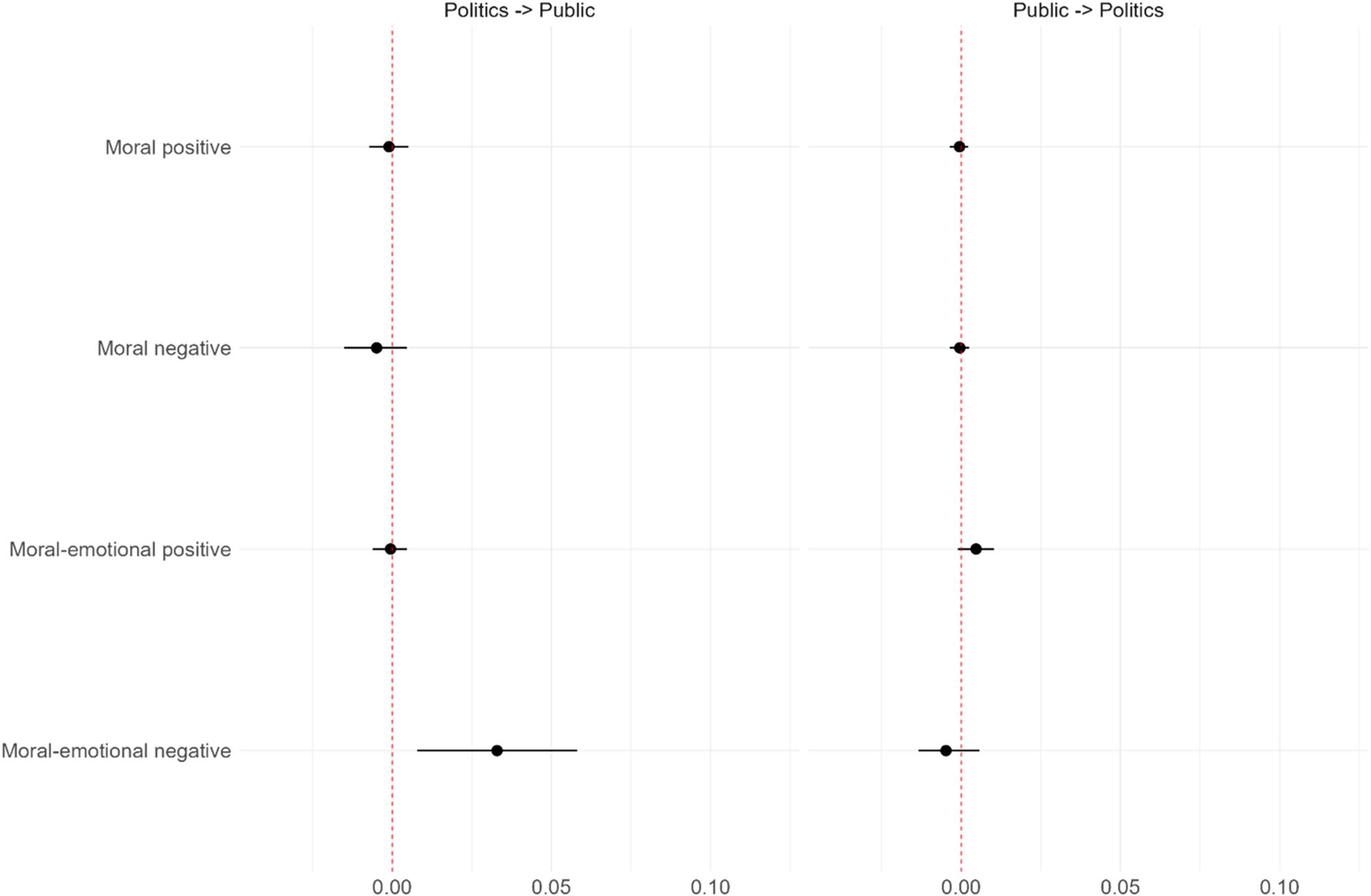I agree :) thank you!
Nice 🧵 here. Key point in this piece: right wing politicians set the affective tone of debate, don’t just capitalize on sentiment. Scroll up and down for more.
🚨 Happy to have this study (with @kristinabsimonsen.bsky.social@psrm.bsky.social I think it is a timely paper on how (radical-right) politicians and parties can use moral-emotional appeals to set the 'tone' of public debate -> focusing on the immigration debate in Germany. 👇
Another week, another list of new publications in the field. So much exciting scholarship has appeared. 1. Widmann & Simonsen show in PSRM that radical right challengers play an important role in shaping public discourse in a negative moral-emotional direction www.cambridge.org/core/journal...
Here is the thread of the second publication: bsky.app/profile/twid...
Here is a link to the (open-access) study: doi.org/10.1017/psrm...
Our results provide empirical evidence that, on top of “policy innovation,” radical challenger parties' negative moral-emotional rhetoric is effective in shaping how the public talks about issues (at least re. immigration)
Which politicians? We find that the radical-right challenger party AfD has the power to stir up negative moral-emotional language in public discourse. When the AfD increases negative moral-emotional language, the public debate follows suit

To study the diffusion of moral and moral-emotional appeals, we use fine-grained social media data (Twitter) over four years in Germany (2017–2021) Our findings indicate that politicians do not follow the public. On the contrary, politicians set the tone of public debate.

Whether a topic is seen in a moral or moral-emotional light can have significant political implications: e.g., group-thinking, (affective) polarization, and intergroup hostility.